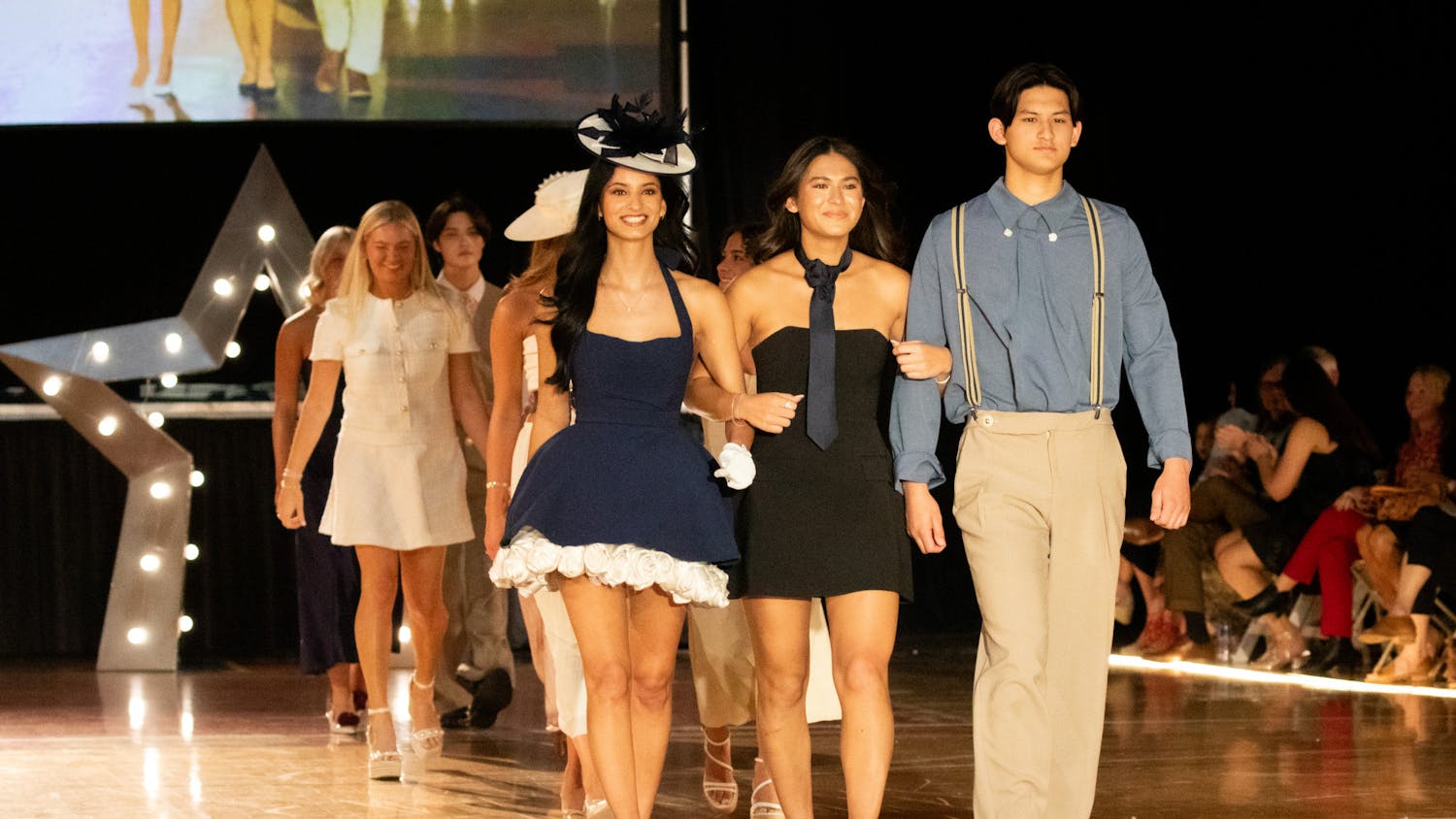After 10 years, Corey Spurlin is well aware of how to "strike up the band."
Spurlin, head marching band director, reached his tenth year with The Auburn University Marching Band when the clock struck 12 on January 1. He was among students in New Orleans for the occasion thanks to the conveniently scheduled Sugar Bowl trip.
His job encompasses all seasons, loads of time and energy and Spurlin is known for his dedication and passion for the programs he oversees.
This dedication grew from dinner-table talk about music, marching and everything performance-related with his father and high school band director. His lessons at school coupled with music and marching-centered trips fostered a clear passion for the arts in the young Corey.
"Some students only experience music at school with their band director, but I got a double-dose at home and even more instruction," Spurlin said. "Most of it carried over when I was teaching public school."
Spurlin's father has been very involved in the Auburn's band, helping with behind-the-scenes elements. While setting up for a halftime show in 2008, Spurlin's father was looking for an outlet to plug up Spurlin's wifes' violin for the performance and realized there were none open. He snatched one of the other cords out, plugged up his daughter-in-law and later realized he had unplugged ESPN. The family received a decent scolding.
Spurlin grew up in Oxford, Alabama and attended Saks High School in Anniston. His father worked as the marching band director and his mother was the librarian.
From the beginning, Spurlin took guidance from his parents musically and in leadership. After lessons at Jacksonville State, he was offered music scholarships from a couple schools, eventually settling on the University of Alabama. Spurlin began studying performance but found himself drawn to the conversations held by those in education.
"I found out I was really passionate about teaching and developed a private studio for trumpet and enjoyed teaching," Spurlin said. "I decided to change my major to music education."
Spurlin envisioned himself as a middle school or high school director when he first changed directions. As he became more involved in the college marching program, eventually gaining a drum major position, his teaching style was tailored to the college ear, striking his interest in directing at the collegiate level.
After graduation, he began teaching at Tuscaloosa Middle School and later Tuscaloosa County High School for two years. He returned to the University of Alabama as an interim assistant director and then a graduate teaching assistant. During this time he received his master's degree.
After receiving his master's, Spurlin attended Louisiana State University for his doctorate. He married after his first year at LSU and was hired by Auburn University after three. Spurlin was welcomed in by students and faculty with excitement and grace.
The culture of each university varied greatly from the next, Spurlin said.
"One thing that struck me immediately coming to Auburn is the work ethic of the students and the accountability they have for each other and respect for authority and desire to represent their school — not that it wasn't the case at the other schools, but that was the creed and the students desire to live out the creed," Spurlin said.
He said there were excellent students at all levels and in his time he's encountered the best of the best.
Along with students, Spurlin has worked with and encountered many musicians, professors and colleagues that have influenced him throughout his career.
Some of those role models and mentors are Doug Rosner, Rick Good, Nikki Gross from Auburn, Roy King, Frank Wicks, Linda Moorhouse from Lousiana State University and Kathryn Scott and Kenneth Ozzello from the University of Alabama.
"They are quick to give advice and help me when needed, they are largely who I lean upon," Spurlin said. "They have had a huge role in helping me define my craft."
Over the past 10 years, Spurlin has taken this craft and executed successful shows and seasons despite changes in the industry.
"In terms of the band and my job, I think that it's the things that haven't changed much that I appreciate," Spurlin said. "Some of my colleagues around the country over the past decade have found that their band is less utilized at football games and basketball games because of all the technology."
"I've felt fortunate over my time here that Auburn continues to value the traditional elements — our marching band, our cheerleaders, our mascot. The fans want that to be integral part of the game day experience here. That makes my job more fun."
In the past few years, the marching band has surpassed expectations, using large tarps, a vehicle, fireworks and utilizing the jumbotron for an interactive element. It's often a shot in the dark, guessing whether a certain show will receive the desired reaction, but Spurlin said they don't know until they try.
"We are always trying to come up with new, innovative elements that we can offer in our shows to our fans without necessarily changing the style of the band or what has made us successful over the years," Spurlin said. "We put everything on the table and we accomplish what we can."
Some of Spurlin's favorite shows have been the Back to the Future Show in 2015, the Irish Show in 2008, and his first show, the Movie Adventure show in 2007.
It is no mistake to assume that Spurlin loves his job, from the results of his hours of work. He said his favorite part of the job is the students and his colleagues.
"People make life fun, not computer work," Spurlin said. "The creative work is fun, but it is tedious. That is fun, especially when you see it on the field and the students enjoy performing it, but I probably love the student interaction more. Seeing how they mature from when they come in at 18 to when they graduate at 22. Especially seeing them after college and how they have succeeded."
Spurlin said the technical work and the music matters, but what matters more to him is how each student develops as a person through their accountability and character. At the start of each season Spurlin and Gross, assistant director of athletic bands, use photo flip-cards to memorize the names of each member of the marching band. Spurlin makes a point to know each student and be able to engage in conversation with them.
"We want to have some relationship with each student," Spurlin said. "If they are walking across campus I should know that they are in the band and be able to address them by their name and see how their day is going and they know that I know who they are."
Spurlin's effect on his students came to surface when he was honored with a video of former students from all over the United States, thanking him for his time and effort.
Do you like this story? The Plainsman doesn't accept money from tuition or student fees, and we don't charge a subscription fee. But you can donate to support The Plainsman.



